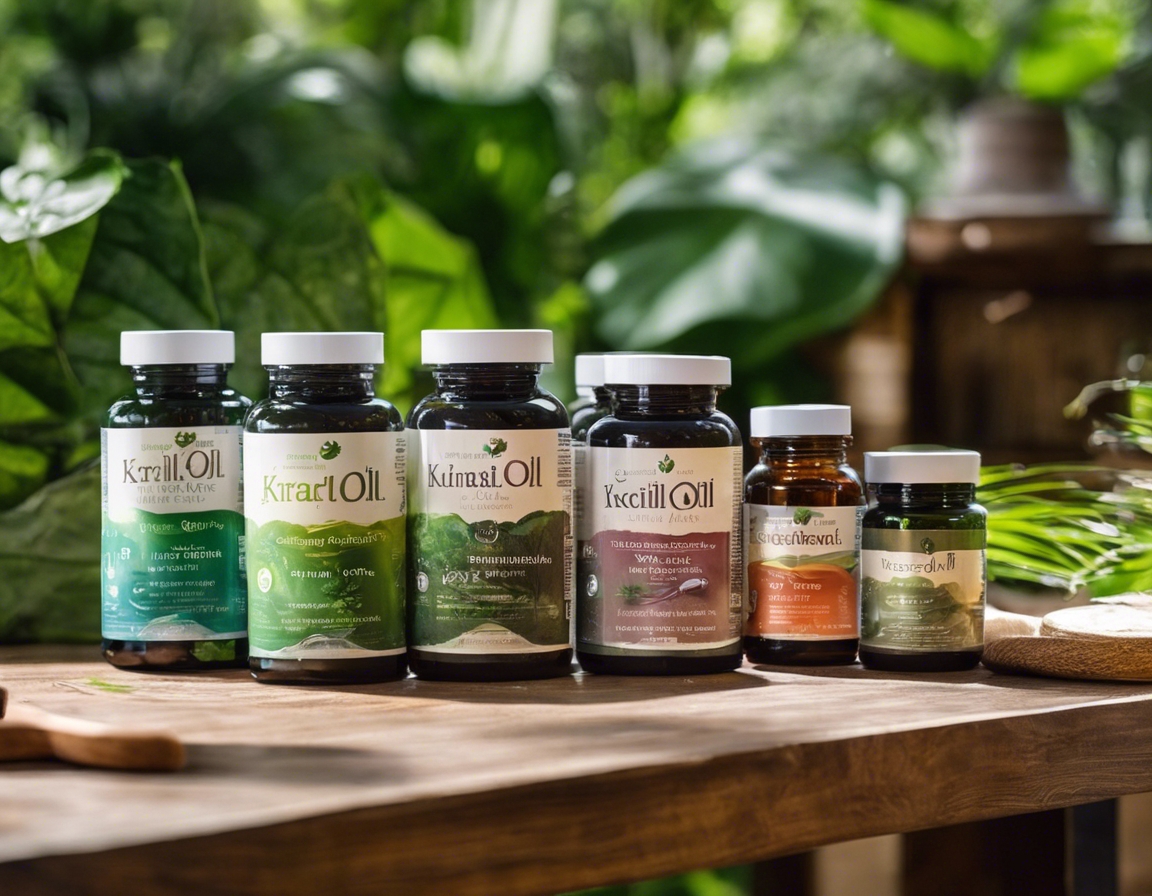Krill oil vs. fish oil: unveiling the truth
Omega-3 fatty acids are essential fats that play a crucial role in the body's metabolism and are vital for maintaining heart health, brain function, and reducing inflammation. Unlike other fats, omega-3s are not produced by the body and must be obtained through diet or supplementation.
Common dietary sources of omega-3 fatty acids include fatty fish, such as salmon, mackerel, and sardines, as well as plant-based sources like flaxseeds and walnuts. However, for those who do not consume enough omega-3 rich foods, supplements like fish oil and krill oil are popular alternatives.
What is Fish Oil?
Fish oil is derived from the tissues of oily fish and is a rich source of two important types of omega-3 fatty acids: eicosapentaenoic acid (EPA) and docosahexaenoic acid (DHA).
Supplementing with fish oil has been associated with a variety of health benefits, including support for cardiovascular health, mental clarity, and immune function.
Despite its benefits, fish oil supplements can sometimes cause side effects such as fishy aftertaste, gastrointestinal discomfort, and may contain environmental contaminants like heavy metals.
What is Krill Oil?
Krill oil is extracted from Antarctic krill, tiny crustaceans that are also a source of EPA and DHA. Unique to krill oil is the presence of phospholipids and the antioxidant astaxanthin, which may enhance the oil's stability and absorption.
Krill oil is touted for its potential to support heart health, reduce inflammation, and improve cholesterol levels. Its phospholipid-bound omega-3s are thought to be more easily absorbed by the body.
While krill oil is generally well-tolerated, it is often more expensive than fish oil and may not be as widely available. Some concerns have also been raised about the sustainability of krill harvesting.
Comparing Krill Oil and Fish Oil
Both krill oil and fish oil contain EPA and DHA, but the structure of these omega-3s in krill oil may lead to better absorption and utilization in the body. However, fish oil typically contains higher concentrations of omega-3s per serving.
The sustainability of fish oil versus krill oil is a complex issue. Krill oil is often praised for being harvested from the pristine waters of Antarctica, but concerns about the impact on the marine ecosystem persist. Fish oil's sustainability depends largely on the practices of the fisheries from which it is sourced.
Both supplements can be affected by contaminants, but krill oil's lower position on the food chain may result in a purer product. Additionally, the astaxanthin in krill oil provides antioxidant protection that may help maintain the oil's purity.
Generally, krill oil is more expensive than fish oil and may be harder to find. Consumers should weigh the cost against the potential benefits and their personal budget.
How to Choose the Right Supplement for You
When selecting an omega-3 supplement, it's important to consider factors such as the concentration of EPA and DHA, the presence of additional beneficial components, and the product's overall quality and purity.
Your choice between krill oil and fish oil should also be influenced by your specific health goals and any existing conditions. Consulting with a healthcare provider can help determine which supplement is most appropriate for your needs.






Comments (0)